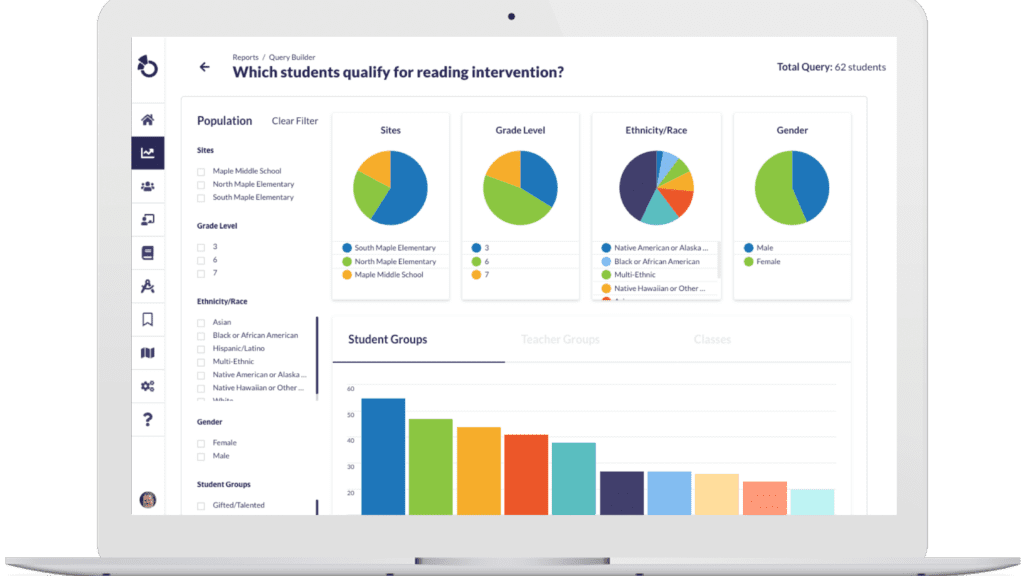Rebel Educator Podcast: Tracking Student Progress Effectively and Efficiently with Chris Hull
By: Otus Team
When Chris Hull talks about technology in schools, he doesn’t lead with dashboards or algorithms. He starts with students and the teachers trying their best to understand them. In this episode of Rebel Educator, Chris shares how his time as a seventh-grade teacher still shapes every decision he makes as the president of Otus. And the throughline is simple: technology should never get in the way of human connection. It should give teachers more time for it.
The episode blends meaningful classroom moments with a clear-eyed view of what AI in education should (and shouldn’t) be as schools look toward the future.
3 Big Ideas for Educators Using AI
Teachers need better visibility, not more tasks
Chris describes something every educator knows well: getting to know a classroom full of students is incredibly meaningful and incredibly time-consuming. Otus was born from that tension. Instead of adding more tools or steps, Chris built something to help teachers see where students really are: their skills, their progress, their patterns. Because when teachers have that clarity up front, the time in the classroom can shift from managing to truly teaching.
“When I talk to educators and they get the time to be able to be with their students, those are not the teachers who are frustrated. It's the teachers who are having to enter something three different times or having to rebuild everything in a different platform. We want to simplify all that by putting all the tools and all the information in one place so that you can be more efficient and effective.”
Data should strengthen relationships, not replace them
A recurring theme in the episode: technology becomes harmful when it wedges itself between teachers and students. Chris argues that the point of collecting student data is to humanize instruction, to understand the quiet students, the overlooked students, the students whose strengths or struggles aren’t always obvious. When teachers can quickly see a student’s academic history, skill progression, or learning patterns, they’re able to connect more personally and intentionally.
“As a teacher, when I was able to understand who they are, what they're passionate about, I felt like I could help unblock a few obstacles in front of them. How can I better understand who my students are? And now that I am no longer in the classroom, it's the part I miss most. There's nothing better than helping a kid learn or helping a kid figure something out.”
Educators are leaders, and their skills translate
One of the most unexpectedly moving parts of the conversation is Chris reflecting on how teaching prepared him for leadership. Managing diverse personalities, communicating clearly, being honest about what’s working, and trying your best while risking failure; the parallels are unmistakable. It’s a quiet reminder of something educators don’t often hear: the skills they use every day are extraordinary, transferable, and deeply valuable.
"I think sometimes educators underestimate or undersell what they are actually doing. Most educators and every principal out there, you really are running your own mini business. Even if you're a classroom teacher, you're running your own mini business. You're dealing with twenty-five employees or students, and being able to gauge where they're at really requires you to manage so many different personalities, processes, and procedures.”
Related Resources
Request a demo!
See exactly how Otus can help your school accelerate student growth and improve student outcomes – all while saving educators time.




